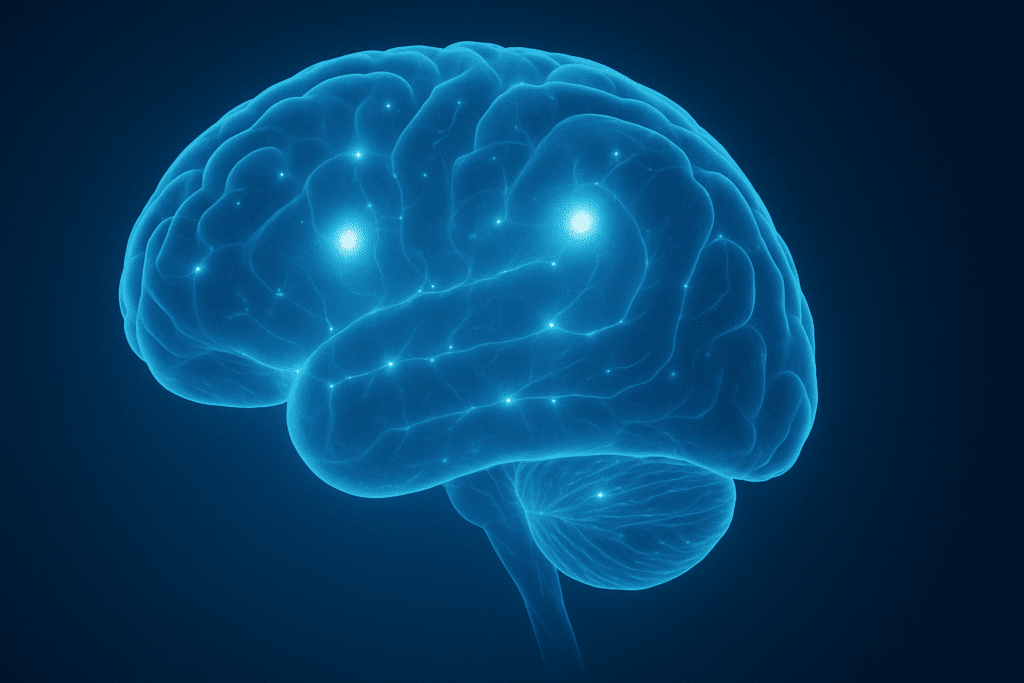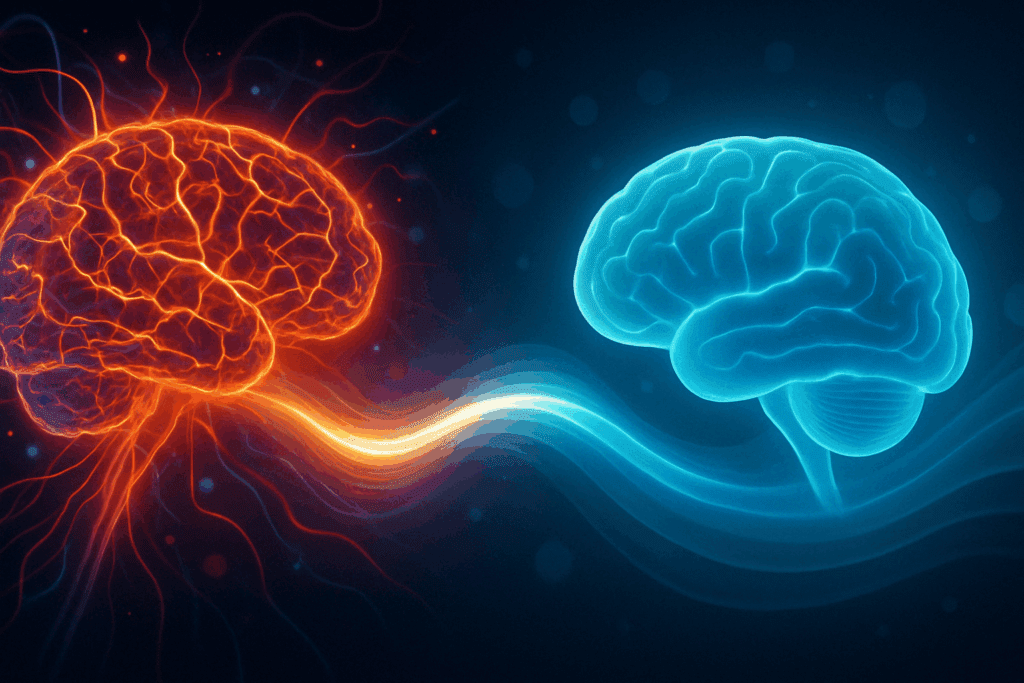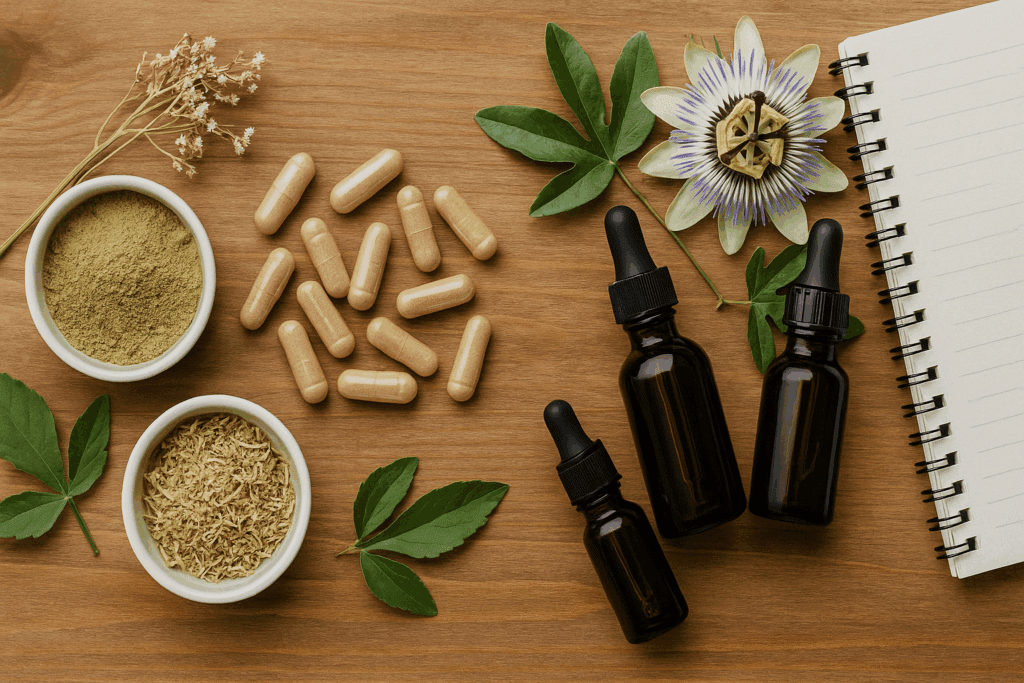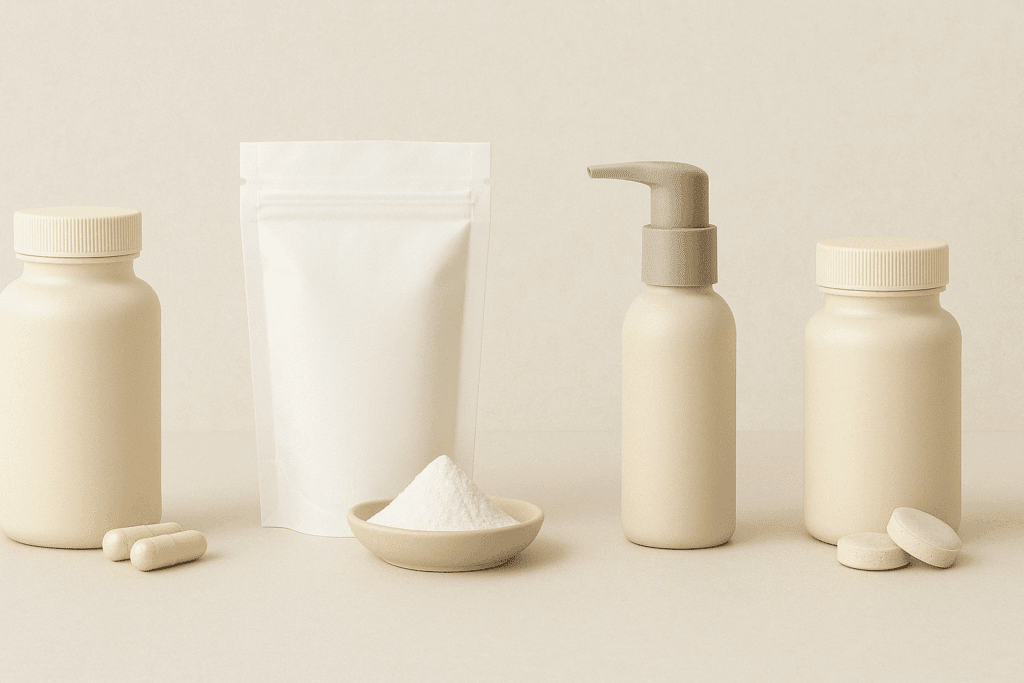Understanding the Interplay Between Adderall and GABA in the Brain
In the landscape of neuroenhancement, few substances generate as much interest as Adderall and GABA. These two compounds—one a powerful pharmaceutical stimulant and the other a naturally occurring neurotransmitter—play vastly different yet intriguingly interconnected roles in the human brain. Adderall, a combination of amphetamine salts, is known for enhancing alertness, increasing energy, and improving attention in those with ADHD. GABA, or gamma-aminobutyric acid, serves as the brain’s primary inhibitory neurotransmitter, tempering overstimulation and helping maintain emotional and cognitive balance.
You may also like: How to Choose the Best Brain Supplements for Adults: Science-Backed Ingredients That Support Focus, Memory, and Mental Clarity
To appreciate how Adderall and GABA affect decision-making, we must first understand their individual mechanisms of action. Adderall primarily boosts the levels of dopamine and norepinephrine in the brain. These catecholamines are critical to motivation, attention, and executive function. Increased dopamine activity, particularly in the prefrontal cortex, helps sharpen focus and improve impulse control—areas that are often compromised in ADHD. On the other hand, GABA doesn’t excite or motivate; instead, it calms. It slows neuronal firing, helping the brain filter distractions and regulate anxiety—functions that are also essential for sound decision-making.

The relationship between Adderall and GABA is complex. While Adderall promotes excitation and cognitive drive, GABA provides the necessary counterbalance to prevent overstimulation. This interplay can significantly affect not just focus but the quality of decisions made under the influence of heightened neural activity. A well-regulated GABA system may enhance the cognitive control exerted while on Adderall, reducing impulsivity and supporting more thoughtful, reflective choices.
ADHD, Cognitive Focus, and the Neurochemical Tug-of-War
For individuals with ADHD, decision-making is often colored by impulsivity, distraction, and inconsistent mental clarity. These challenges stem from dysregulations in neurotransmitter systems—chiefly dopamine, norepinephrine, and, as recent evidence suggests, GABA. Research shows that people with ADHD tend to have reduced GABAergic activity, especially in the anterior cingulate cortex and prefrontal regions responsible for judgment and executive function. This deficiency can lead to impaired inhibitory control and emotional dysregulation.
When Adderall is introduced into this neurochemical equation, it doesn’t increase GABA directly. Instead, it amplifies excitatory neurotransmission, which can exacerbate GABA deficits if left unaddressed. This is where supplementation—and particularly the search for the best GABA supplement for ADHD—becomes crucial. By bolstering GABA levels naturally, one may help counterbalance the stimulant effects of Adderall, allowing for a smoother, more cognitively balanced experience. The result may be not just improved attention but enhanced decision-making capacity through better emotional regulation and reduced impulsivity.
This doesn’t mean GABA is a sedative antidote to Adderall. Rather, it serves as a moderator—fine-tuning the brain’s excitatory-inhibitory balance in a way that supports optimal mental performance. For those navigating the dual demands of managing ADHD symptoms while optimizing cognition, this neurochemical synergy holds significant therapeutic promise.

How Adderall Influences Risk and Reward Processing
At the heart of every decision lies an internal calculus of risk and reward. Adderall alters this equation by modifying how the brain anticipates outcomes and values incentives. It does so by intensifying dopamine signaling in the nucleus accumbens and prefrontal cortex—areas closely linked to motivation, reward anticipation, and behavioral reinforcement. While this boost can promote goal-oriented behavior, it may also increase susceptibility to risky choices, especially in environments where instant gratification is readily available.
For individuals with ADHD, this altered reward sensitivity can have both positive and negative consequences. On one hand, Adderall can help sharpen focus on long-term goals by making them feel more rewarding. On the other, it may impair the ability to evaluate risk appropriately, particularly in emotionally charged situations. This is where the role of GABA becomes essential. By enhancing inhibitory tone, GABA can dampen impulsive urges and promote more measured evaluation of potential consequences.
A well-balanced GABA system may help buffer the reward-sensitizing effects of Adderall, fostering a more grounded and reflective decision-making style. In this context, the best GABA supplement for ADHD is not merely a calming agent but a strategic cognitive enhancer—one that supports the brain’s ability to weigh options with greater nuance and self-regulation.
GABA’s Role in Emotional Regulation and Cognitive Restraint
Decision-making is not a purely rational act; it is heavily influenced by emotional state and internal noise. GABA plays a central role in emotional regulation by inhibiting excessive neural activity in areas like the amygdala and anterior cingulate cortex. This inhibition helps mitigate anxiety, reduce mental chatter, and improve the clarity with which one evaluates choices.
In ADHD, GABA dysfunction often manifests as emotional volatility, frustration intolerance, and poor impulse control—all of which can derail decision-making. Adderall can sometimes intensify these tendencies by increasing arousal without adequately supporting emotional regulation. This is where GABA supplementation can be transformative. By restoring inhibitory tone, GABA enhances cognitive restraint, allowing individuals to pause, reflect, and respond—rather than react.
The ideal GABA supplement should support neurotransmitter synthesis and availability without causing sedation. Ingredients like L-theanine, PharmaGABA, and magnesium threonate have shown promise in this regard, offering calming benefits without cognitive dulling. When combined with stimulant medication, these supplements may foster a state of “calm focus,” which is ideal for complex decision-making tasks that require both drive and discernment.

The Search for the Best GABA Supplement for ADHD
Identifying the best GABA supplement for ADHD involves more than finding a product with high GABA content. The blood-brain barrier—a tightly regulated interface—limits the direct entry of GABA into the brain. As a result, many over-the-counter GABA supplements may have limited bioavailability. This is why formulations that support endogenous GABA production or improve its signaling are often more effective.
L-theanine, found in green tea, is one such compound. It crosses the blood-brain barrier and increases GABA levels indirectly by modulating glutamate activity. Its calming effects have been shown to improve attention and reduce stress—two essential elements for improved decision-making. PharmaGABA, a fermented form of GABA produced by Lactobacillus hilgardii, may also offer better brain bioavailability than synthetic GABA, making it a strong contender among natural options.
Magnesium plays a dual role as both a GABA receptor agonist and a cofactor for neurotransmitter synthesis. Magnesium threonate, in particular, has superior brain penetration and has been associated with improvements in working memory and attention. Combined with zinc and B6—two additional cofactors in GABA metabolism—magnesium-based formulations can create a robust foundation for cognitive support.
Ultimately, the best GABA supplement for ADHD is likely to be one that works synergistically with the individual’s neurobiology, lifestyle, and any concurrent medications such as Adderall. Personalized experimentation, guided by a healthcare provider, can help identify the optimal combination for each person.
Timing, Dosage, and Synergy: Practical Tips for Combining Adderall and GABA
Using Adderall and GABA supplements together demands careful consideration of timing, dosage, and individual sensitivity. Taking both simultaneously may not always yield the best results. Many users find that taking GABA-enhancing compounds later in the day—when Adderall’s effects begin to wane—can smooth the transition into the evening without a disruptive crash. Others prefer microdosing calming supplements in the morning alongside Adderall to blunt the edge of overstimulation.
Dosage must be tailored to individual needs. While GABA itself is generally well-tolerated, some people may experience drowsiness or fatigue if taken in excess—particularly when combined with magnesium or L-theanine. Start with the lowest effective dose and build gradually, observing not just energy levels but also changes in focus, emotional regulation, and decision-making consistency.
Synergy, not sedation, is the goal. The ideal state is one of engaged calm—alert enough to focus intensely, yet relaxed enough to evaluate decisions with clarity. For many with ADHD, this nuanced balance may be what’s most elusive, and yet most transformative when achieved through carefully calibrated supplementation. Professional guidance is essential, especially when combining over-the-counter nootropics with prescription stimulants like Adderall.
Brain Imaging, Biomarkers, and Emerging Research on GABA in ADHD
Recent advances in neuroimaging have shed light on how GABA levels correlate with ADHD symptoms and treatment responses. Magnetic resonance spectroscopy (MRS) allows researchers to measure GABA concentrations in specific brain regions, offering insights into how this neurotransmitter shapes attention, mood, and impulse control. Studies have found reduced GABA levels in the prefrontal cortex, anterior cingulate cortex, and striatum of individuals with ADHD—areas that are also modulated by Adderall.
Interestingly, early research suggests that baseline GABA levels may predict how well a person responds to stimulant medication. Those with more pronounced GABA deficits may experience greater side effects or fluctuating efficacy when taking Adderall. In such cases, GABA-targeted interventions—whether through diet, lifestyle, or supplementation—may help optimize treatment outcomes.
Biomarkers such as EEG theta/beta ratios, cortisol levels, and even gut microbiome diversity are also being explored as indirect indicators of GABAergic tone. The interplay between gut health, GABA production, and cognitive function is particularly intriguing. Certain probiotics, such as Lactobacillus rhamnosus, have been shown to increase GABA receptor expression in the brain, hinting at a future where the best GABA supplement for ADHD may include psychobiotics designed to influence the gut-brain axis.
Functional Outcomes: What Improved Decision-Making Really Looks Like
When Adderall and GABA are working in harmony, the improvements in decision-making can be both profound and subtle. Rather than dramatic changes in personality or productivity, individuals often report feeling more centered, less reactive, and better able to follow through on long-term goals. They may find it easier to resist distractions, weigh pros and cons more thoughtfully, and manage interpersonal interactions with greater composure.
For students, this might translate into better study habits and fewer last-minute cramming sessions. For professionals, it could mean more deliberate planning, reduced procrastination, and improved communication. And for parents managing household chaos, it might mean fewer impulsive outbursts and more consistent emotional presence. These functional outcomes are often more meaningful—and sustainable—than a simple increase in raw mental speed or energy.
This is why enhancing decision-making through neurochemical balance is ultimately a question of quality, not quantity. More dopamine may make you faster, but better GABA regulation can make you wiser. In the quest for cognitive optimization, this distinction is crucial.

FAQ: Deepening Your Understanding of Adderall and GABA for Focus, ADHD, and Decision-Making
1. Can combining Adderall and GABA improve emotional decision-making under stress?
While Adderall enhances focus and cognitive speed, it may also heighten emotional reactivity, especially under stress. GABA, being the brain’s primary inhibitory neurotransmitter, can help regulate these emotional surges by promoting calmness and reducing impulsive tendencies. When taken together—under medical supervision—the combination of Adderall and GABA may help individuals make more rational decisions during high-stakes or emotionally charged situations. This pairing can be particularly relevant in ADHD management, where emotional regulation is often as critical as attention control. However, the balance between stimulation and inhibition is delicate, and responses can vary significantly based on individual neurochemistry.
2. What role does GABA play in post-Adderall “crash” symptoms?
Many users report a “crash” after Adderall wears off, marked by fatigue, anxiety, and irritability. GABA’s calming effects may help soften this rebound by stabilizing mood and easing the nervous system into a more relaxed state. Some users have found that using the best GABA supplement for ADHD post-dose can smooth the transition off stimulants, reducing the emotional lows that often follow. That said, timing and dosage are crucial—too much GABA too soon may blunt the stimulant’s intended benefits. This is why expert consultation is essential when combining GABAergic compounds with stimulant medications.
3. How does GABA affect decision fatigue when using Adderall long-term?
Decision fatigue occurs when cognitive resources are depleted, often after prolonged focus or mental strain—a common scenario for long-term Adderall users. GABA can offer neurological “recovery time” by quieting overactive circuits and replenishing inhibitory tone in the prefrontal cortex. While Adderall and GABA may seem neurologically opposed, their strategic combination can optimize both performance and resilience. Users who pair Adderall for task initiation with the best GABA supplement for ADHD during recovery often report more balanced productivity cycles and less cognitive burnout. It’s a nuanced approach that mirrors how professional biohackers manage mental stamina.

4. Is GABA beneficial for people who experience Adderall-induced anxiety or restlessness?
Yes, especially for individuals who are “hyper-responders” to stimulants. Adderall can elevate dopamine and norepinephrine quickly, sometimes leading to anxiety, restlessness, or even mild paranoia in sensitive users. GABA, acting as a brake on overstimulation, may counter these side effects without neutralizing the therapeutic focus benefits. Many functional psychiatrists recommend a low-dose GABA supplement—specifically tailored for ADHD profiles—to restore calm without sedation. The key is using the best GABA supplement for ADHD that crosses the blood-brain barrier effectively, such as pharma-GABA or derivatives like picamilon.
5. Can GABA supplements reduce Adderall tolerance over time?
Emerging research suggests that GABAergic support may play a role in slowing the development of stimulant tolerance. Tolerance often arises from chronic overstimulation of dopaminergic pathways, which GABA can indirectly modulate by restoring inhibitory balance. By supporting homeostasis, certain forms of GABA may reduce the need for dose escalation in long-term Adderall users. Some ADHD specialists now incorporate GABAergic protocols into stimulant regimens to maintain drug sensitivity and mitigate neuroadaptive stress. Choosing the best GABA supplement for ADHD—not just any generic form—is vital to seeing this benefit over time.
6. What are the differences between synthetic and natural GABA supplements when used with Adderall?
Natural GABA sources like fermented pharma-GABA may offer more bioavailable and tolerable options for users pairing GABA with stimulants. Synthetic GABA, while cheaper, often lacks the neurological finesse needed for therapeutic synergy with Adderall. For individuals using both Adderall and GABA, the purity, delivery mechanism, and co-factors (like L-theanine or magnesium) of the supplement matter greatly. The best GABA supplement for ADHD is usually one that includes complementary nutrients that support calming neurotransmitter activity without compromising alertness. Many ADHD-focused clinics now recommend stacked GABA formulas that are designed specifically for use alongside cognitive enhancers.
7. Are there long-term cognitive benefits to combining Adderall and GABA for ADHD management?
Yes—when used wisely. While Adderall boosts performance acutely, GABA contributes to long-term neural resilience by minimizing excitotoxic stress and improving sleep architecture. The dual use of Adderall and GABA can protect executive function over time by promoting recovery between cognitive sprints. This pairing may also help preserve decision-making integrity, especially in adults managing both professional pressures and ADHD symptoms. Selecting the best GABA supplement for ADHD ensures that the calming influence does not impair cognitive clarity but rather supports mental longevity.
8. How do sleep and GABA interact for Adderall users with insomnia?
Adderall often disrupts sleep due to its prolonged stimulant effects, making nighttime GABA levels especially important. Supplementing with GABA in the evening can help offset the hyperarousal caused by stimulants, promoting deeper and more restorative sleep. Poor sleep, in turn, worsens ADHD symptoms and undermines the benefits of daytime stimulant use. Some of the best GABA supplements for ADHD include time-released or liposomal formulations designed to sustain overnight tranquility. This not only supports neuroregeneration but also optimizes the following day’s mental performance.
9. Can GABA improve social decision-making and interpersonal interactions for people on Adderall?
Stimulants like Adderall can sometimes cause users to become overly task-focused or socially blunt, especially in high-dose scenarios. By reintroducing emotional balance and empathy, GABA may improve social cognition and interpersonal sensitivity. Individuals who use both Adderall and GABA report greater ease in reading social cues, regulating tone, and responding with emotional intelligence. In ADHD cases where social struggles are pronounced, adding the best GABA supplement for ADHD may enhance not just focus, but also the quality of communication. This has growing relevance in occupational therapy and social-skills coaching.

10. What should users consider before starting a GABA supplement alongside Adderall?
Before introducing any supplement, users should assess their baseline mood, sleep patterns, stimulant sensitivity, and overall neurotransmitter profile. Adderall and GABA affect opposing systems—dopaminergic vs. GABAergic—so understanding the balance is key. Users should avoid over-sedation or masking underlying anxiety disorders with GABA alone. Consulting with an integrative psychiatrist or functional medicine practitioner is strongly recommended to identify the best GABA supplement for ADHD that complements, rather than competes with, Adderall’s effects. Lab testing (like neurotransmitter panels or cortisol rhythms) can also inform more precise and personalized GABA dosing.
Final Thoughts: Optimizing Cognitive Focus with Adderall and GABA Synergy
The intricate dance between Adderall and GABA illustrates a broader truth about the brain: optimal performance is not about maximizing stimulation, but achieving balance. While Adderall may increase drive, focus, and mental energy, it is GABA that allows these enhancements to unfold within a framework of calm, control, and deliberate thought. Together, they offer a powerful, complementary strategy for improving not just attention, but the decision-making capacity at the heart of every productive life.
Finding the best GABA supplement for ADHD is not a one-size-fits-all proposition. It involves a personalized exploration of bioavailability, timing, and neurochemical needs. Whether through L-theanine, PharmaGABA, magnesium threonate, or emerging gut-brain interventions, the right supplement can elevate Adderall’s benefits while minimizing its drawbacks. With medical guidance and mindful experimentation, it is possible to cultivate a mental state where calm and clarity coexist—empowering more intentional choices in every aspect of life.
As research continues to evolve, so too does our understanding of how these compounds interact within the unique architecture of the ADHD brain. What remains clear is that decision-making—far from being a purely rational exercise—is deeply shaped by the chemistry of our attention, emotions, and inhibition. Harnessing the synergy of Adderall and GABA may be one of the most effective ways to optimize this process and unlock higher levels of focus, emotional regulation, and executive function for those who need it most.
Was this article helpful? Don’t let it stop with you. Share it right now with someone who needs to see it—whether it’s a friend, a colleague, or your whole network. And if staying ahead on this topic matters to you, subscribe to this publication for the most up-to-date information. You’ll get the latest insights delivered straight to you—no searching, no missing out.
Further Reading:
Gamma-Aminobutyric Acid (GABA)
GABA Supplementation Negatively Affects Cognitive Flexibility Independent of Tyrosine


